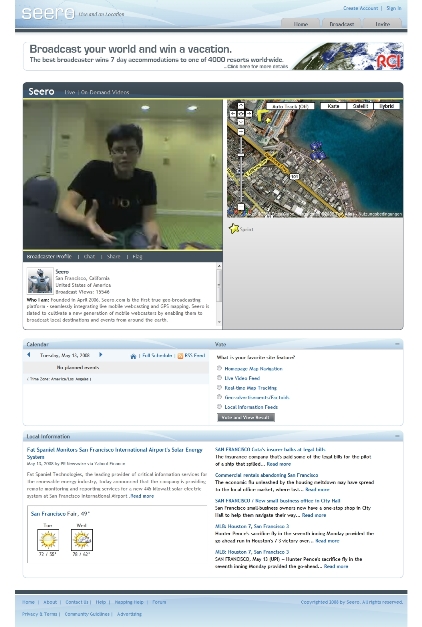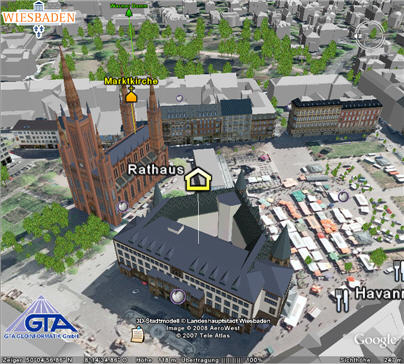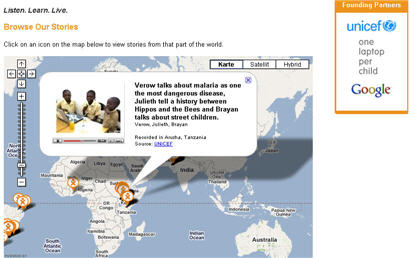“Seero.com is a geo-broadcasting platform for users to broadcast and experience destinations around the world. Seero fuses live and on-demand video with GPS mapping to create a rich and unique user experience. Our goal is to shake the foundations of how you see video with a platform that promotes exploration and geographical awareness.
If you are looking for another typical video site, or ‘Television Online’, this probably isn’t the place for you. If you want to experience a new way to see the world, welcome. Seero utilizes the vast potential of the internet to create an original brand of content. If you are a citizen journalist, local tour guide, back road explorer, talented performer, or simply have a great destination to unveil, Seero is your platform to broadcast your world.”
See also
More: Where 2.0 News Coverage




 Posted by Andreas H. Bock
Posted by Andreas H. Bock  Since 18 january Wiesbaden presents a 3D view of the city in Google Earth – as the first city of Hesse, Germany. Wiesbaden follows Berlin, Hamburg, Dresden…
Since 18 january Wiesbaden presents a 3D view of the city in Google Earth – as the first city of Hesse, Germany. Wiesbaden follows Berlin, Hamburg, Dresden…


You must be logged in to post a comment.